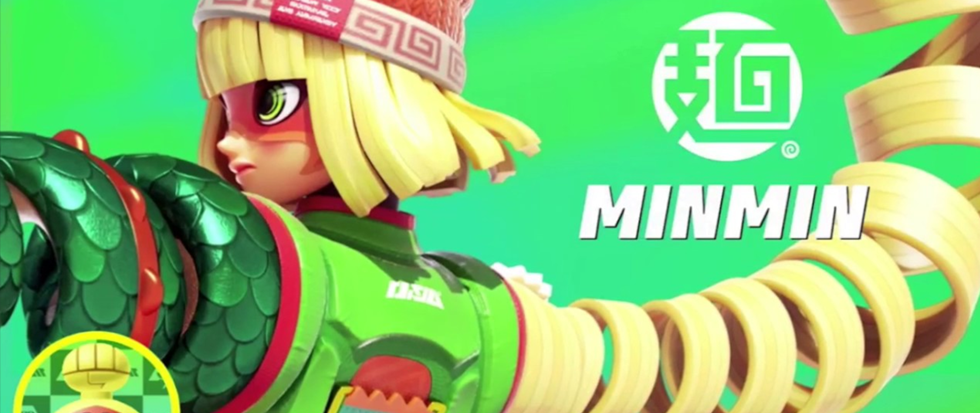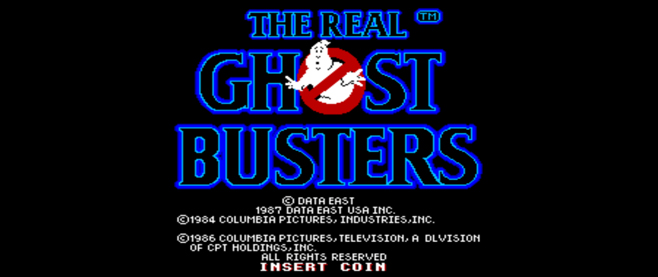
The Uncomfortable Racial Stereotypes in ARMS and Videogames
Among the colorful roster of pugilists in Nintendo’s ARMS, the one that stood out the most to me is Min Min, the Chinese fighter whose entire shtick is her intense love for ramen. Either that, or she’s cleverly capitalizing on her new-found fame on the ring to become a literal billboard for her family’s noodle restaurant. Min Min is even sporting a pair of noodle arms, a beanie that resembles a ramen bowl, and a top and shoes emblazoned with “mian,” the Chinese word for noodles. I love it. I love that Nintendo included a Chinese fighter in its ARMS line up, and that she wasn’t wearing a goddamn cheongsam like the litany of Chinese fighters in other games.
I’m also aware that Min Min’s fixation with noodles plays to uncomfortable stereotypes about my race.
This brings to mind a recently-canned mobile game, Dirty Chinese Restaurant, which sets off a bit of a furor on racism. The game lets you manage a Chinese restaurant, and some tasks include chasing down dogs and cats to serve as food, and evading immigration officers who are threatening to deport your workers. It’s a cesspool of some of the most abhorrent Chinese stereotypes, but as a Singaporean Chinese, reading about this blatantly racist game had me in stitches. I thought it was hilarious, because even though I know such stereotypes are rampant, they couldn’t be further from the truth.
I recognize that I’m speaking from a position of privilege, however. Such racism is primarily a hot button issue for Chinese Americans, and in places where Chinese is the minority. Not so for me. Ethnic Chinese make up 76.2% of the population in Singapore, and we aren’t underrepresented by any stretch of the imagination. In fact, our interest dominates the political discourse in the country—often at the expense of minority races like Malays, Indians and Eurasians.
On the other hand, America had a history of anti-Chinese sentiments, beginning with xenophobic issues like the Yellow Peril since the late 18th century. The immigration of Eastern Asians was perceived as a mortal threat to white civilization, with the Chinese often depicted as evil, conniving perverts with an unnatural sexual voracity. These culminated in the Chinese Exclusion Act of 1882, in which most Chinese were banned from the country.
Of course, Min Min’s design is nowhere as blatantly offensive as Dirty Chinese Restaurant, but it does have its issues. For instance, ramen is a Japanese dish, not a Chinese one—so the one Min Min is often referencing is probably the Chinese lamian. I may be getting pedantic here, but the two dishes are rather distinct from one another. Yet, they are used interchangeably. Plus, Min Min’s noodle obsession is akin to putting Mario in a pizza costume just because he’s Italian. Worse still is her signature dragon punch, because aside from Chinese pagodas and that racist wonton font, what else could convey a sense of orientalism more than the dragon motif?

These aren’t terribly off-putting for me—part of me find Min Min’s appetite for ramen (lamian?) genuinely endearing—but it may be so for other people of Chinese ancestry. That’s why I feel the need to make this distinction, especially in light of some responses to David’s piece about Mario appropriating Mexican culture in Super Mario Odyssey. There’s a tendency to dismiss his point, and topics on whitewashing and cultural appropriation, by rebutting that since others of Mexican descent aren’t offended, David doesn’t have the right to be so. It’s a disingenuous point to make. Our life experiences, shaped by a multitude of issues like representation and our environment, are vastly different from one another. Not everyone experiences the world the same way. To flagrantly dismiss this is more than just insulting; it also minimizes the very real concern of racial prejudice.
To me, this is most distinct in the disparity of representation for Asian Americans and Asians in Asia. Chinese representation was never an issue at home, and this could be why I’m more tolerant—or even less sensitive to—ethnic stereotypes against Asians in mainstream media. Yet, the same probably can’t be said for most Chinese Americans, who may never have such opportunities.
Perhaps more talked about than Min Min’s questionable design is Twintelle, the only ARMS fighter who didn’t wake up to the Kafkaesque horror of sprouting elastic arms. As a black fighter, she attracted both a fair amount of criticism and praise for her springy, weaponized hair. Tanya DePass from Mic disapproved of the character, citing the politicized issues of black hair and the lack of options in games. Others, like Shonté Daniels from Paste Magazine, saw the hair as a source of pride for ARMS’ only black woman. Ultimately, both arguments are just as valid, and it’s great that they don’t diminish the feelings of the other when discussing the issue.
Building positive, nuanced representations of various cultures is always a work in progress, and it’s heartening to see Nintendo focusing its attention on achieving diversity when conceptualizing the cast of ARMS fighters. This was confirmed by Masaaki Ishikawa, the art director of ARMS, who shared with The Verge that diversity was part of their design process. Despite the occasional hiccups, I would love to see more of the cast in future updates. And of course, more of such conversations about representation in the games we play.



